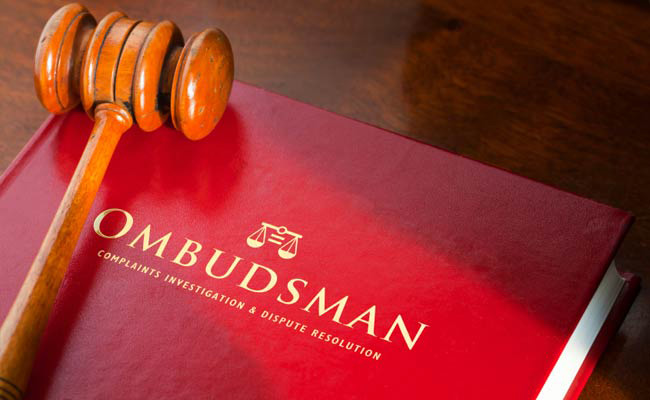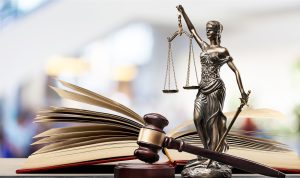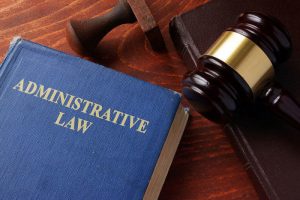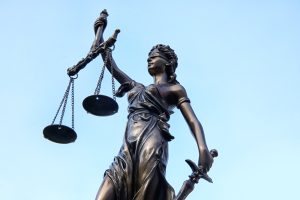Table of Contents
Introduction
Administrative law provides for control over the administration by an outside agency strong enough to prevent injustice to the individual while leaving the administration adequate freedom to enable it to carry on effective government. Any progressive system of administration postulates the need of a mechanism for handling grievances against administrative faults. Under this system, every member of the public has the right to know what passes in government files. In such a context, the treatment of this subject involves the study of the following topics:-
1. Ombudsman.
2. Right to know.
3. Discretion to disobey.
4. Central Vigilance Commission.
Meaning
Ombudsman means “the grievance man” or “a Commissioner of the Administration”. A precise definition of Ombudsman cannot be given. But Garner rightly states that he is
“An Officer of Parliament, having as his primary function, the duty of acting as an agent for Parliament, for the purpose of safeguarding citizens against abuse or misuse of administrative power by the executive”.
According to Prof. S.K. Agrawal, the term ‘Ombudsman’ refers only to institutions which have three basic and unique characteristics :
(a) Ombudsman is an independent and non- partisan officer of the legislature who supervises the administration;
(b) He deals with specific complaints from the public against administrative injustice and mal-administration;
(c) He has the power to investigate, criticize and report back to the legislature, but not to reverse administrative action.
Importance
As regards importance of the Ombudsman, it is stated in Justice Report: “He is not a super administrator to whom an individual can appeal when he is satisfied with the discretionary decision of a public official in the hope that he may obtain a more favourable decision. His primary function is to investigate allegations of maladministration“
In terms of Utility, Ombudsman means ‘Watchdog of the administration’ or ‘the
protector of the common people’. The Ombudsman inquires and investigates all complaints made by citizens against the abuse of discretionary power, mal-administration or administrative inefficiency and takes appropriate actions. For that purpose, very wide powers are given to him. He has access to departmental files. The complainant is not required to lead any evidence before the Ombudsman to prove his case. He is empowered to grant relief to the aggrieved person.
His function is to satisfy himself whether his complaint was justified or unjustified. He can act even suo moto. His powers are not limited like the powers of a Civil Court.
Historical Background
The institution of ombudsman originated in Scandinavian countries. The institution of ombudsman first came into being in Sweden in 1713 when a “chancellor of justice” was appointed by the king to act as an invigilator to look into the functioning of a wartime government. From 1713 the duty of this ombudsman was to mainly ensure the correct conduct of royal officials. The institution of the ombudsman was firmly incorporated into the Swedish constitution from 1809.
It was defined as the parliamentary body supervising judges, government and other officials, and ensuring their compliance with laws and other legal regulations.
The embedding of the ombudsman in the constitution was completed by a further law specifying in greater detail the scope of his activities and his legal authority.The institution of the ombudsman developed and grew most significantly in the 20th century. Ombudsman institutions were on the increase especially in the period after the Second World War when almost a hundred of them were established. The institutions took varied forms and modifications depending on the historical, political and social background of the given country.
In India the ombudsman is known as lokpal or lokayukata.The concept of constitutional ombudsman was first proposed by the then law minister Ashok Kumar Sen in parliament in the early 1960s.The term lokpal and lokayukta were coined by Dr.L.M.Singhvi as the indian model of ombudsman for the redressal of public grievances,it was passed in lok sabha In the year 1968 but it was lapsed with dissolution of lok sabha and since then has lapsed in the lok sabha many times.
Need For Lokpal
There are several deficiencies in our anti-corruption systems because of which despite overwhelming evidence against the corrupt, no honest investigation and prosecution takes place and the corrupt are hardly punished. The whole anti-corruption set up ends up protecting the corrupt.
- Lack of Independence Most of our agencies like CBI, state vigilance departments, internal vigilance wings of various departments, Anti-corruption Branch of state police etc are not independent. In many cases, they have to report to the same people who are either themselves accused or are likely to be influenced by the accused.
- Powerless Some bodies like CVC or Lokayuktas are independent, but they do not have any powers. They have been made advisory bodies. They give two kinds of advice to the governments – to either impose departmental penalties on any officer or to prosecute him in court. Experience shows that whenever any minister or a senior officer is involved, their advice is rarely followed.
- Lack of Transparency and internal accountability In addition, there is the problem of internal transparency and accountability of these anti-corruption agencies. Presently, there isn’t any separate and effective mechanism to check if the staff of these anti-corruption agencies turns corrupt. That is why, despite so many agencies, corrupt people rarely go to jail. Corruption has become a high profit zero risk business. There is absolutely no deterrence against corruption.
Salient features of The Lokpal and Lokayuktas Act, 2013
- The Lokpal and Lokayuktas Act, 2013 provided for Lokpal at the centre having jurisdiction of trying cases of corruption against all Members of Parliament and central government employees. The Lokayuktas have functions similar to the Lokpal, but they function on a state level.
- The office of the Lokpal and Lokayuktas deals with charges of corruption against any public official and includes the office of the prime minister of the court but with reasonable safeguards. Both the Lokpal and the Lokayukta deal with charges of corruption against the government and its employees, in fact they even conduct investigations and based on the findings from such investigations they conduct trials.
- The act lays down the provision to set up a Lokayukta and its set of powers for each state without clearly defining the extent of the same, this has led to various different Lokayuktas being setup, some with more power than the others. In order to create uniformity a proposal to implement the Lokayukta uniformly across Indian states has been made. The Act provides that all states set up office of the Lokpal and/or Lokayukta within one year from the commencement of the said Act.On the other hand, Lokpal will consist of a chairperson and a maximum of eight members, of which 50% will be judicial members, 50% members of Lokpal shall be from SC/ST/OBCs, minorities and women.
- The newly enacted Lokpal Act provides for confiscation and attachment of any property of any government official which he or she has come to own through corrupt practices and the same can be done during pendency of proceedings against the said official.
- The Lokpal Act mandates that all public officials should furnish the assets and liabilities of themselves as well as their respective dependents. In fact the said Act even guarantees protection to any government official who acts as a whistle blower and as an ancillary a Whistle Blowers Protection Act has also been enacted.
Powers of Lokpal
- It has powers to superintendence over, and to give direction to CBI.
- If it has referred a case to CBI, the investigating officer in such a case cannot be transferred without approval of Lokpal.
- Powers to authorize CBI for search and seizure operations connected to such cases.
- The Inquiry Wing of the Lokpal has been vested with the powers of a civil court.
- Lokpal has powers of confiscation of assets, proceeds, receipts and benefits arisen or procured by means of corruption in special circumstances
- Lokpal has the power to recommend transfer or suspension of a public servant connected with allegations of corruption.
- Lokpal has power to give directions to prevent destruction of records during preliminary inquiry.
Jurisdiction Of Lokpal
The Lokpal is empowered to investigate into any administrative action taken by or with the approval of a Minister or Secretary of Union or State Government, either on receiving a written complaint by an aggrieved person or suo motu, relating to mal- administration, undue favour or corruption.
But the Lokpal is not to undertake investigation in respect of which the aggrieved person has any remedy before a Court of law or statutory Tribunal.
Matters excluded from the Jurisdiction
However, there are certain matters excluded from the jurisdiction of Lokpal:-
- Action relating to Foreign Government.
- Action taken under Foreigners’ Act and the Extradition Act.
- Action taken for the investigation of crime.
- Exercise of power to determine whether a matter shall go to Court or not.
- Action relating to commercial relations governed by contract.
- Action taken relating to appointments, removals etc. of personnel.
- A discretionary action, except where there has been no exercise of discretion at all.
Conclusion
The institution of lokpal has been a landmark move in the history of Indian polity, The lokpal and lokayukta act 2013 has offered a productive solution to combat the never ending menace of corruption It has tried to bring a much needed change in the battle against corruption in the administrative structure of India but at the same time there are loopholes and lacunae which need to be corrected. Firstly it is not free from political influence as the appointing committee itself consist of parliamentarians There is no criteria to decide who is an ‘eminent jurist’ or ‘a person of integrity.’ Thus, this appointment can easily be manipulated. Further, the act provides no concrete immunity to the whistle blowers.



